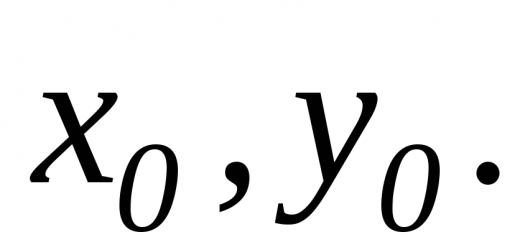Science has always advocated a healthy lifestyle, recommending a balanced diet and exercise. In addition, doctors say that each cigarette shortens your life by 11 minutes, and drinking alcohol is unlikely to give you the opportunity to live happily ever after. However, there is such a person who smokes cigars, abuses coffee and eats fried catfish every day. This is the oldest veteran of World War II. He is 110 years old, he still drives a car and manages all his household independently.
This man's name is Richard Overton, he was a corporal during World War II and now lives in Austin, Texas. His routine includes morning coffee and whiskey and 12 cigars a day. His diet constantly includes fried catfish and creamy ice cream with nuts. The only medicine he takes is aspirin. However, he is in excellent shape, is not overweight and, at 110 years old, is very active.
During World War II, Corporal Richard Arvin Overton served with the 1887th Engineer Aviation Battalion in Guam, Hawaii, and Iwo Jima. Three years later, he left the army, bought a house in Austin for $4,000, and has lived there for 70 years. In his life, he sold furniture and even worked in the state treasury department. Richard Overton was married twice, but never had children.

His daily routine is quite unconventional. Overton starts his morning with a cup of morning coffee and a generous dose of whiskey. During the day, he always smokes 12 sweetish Tampa cigars, but without inhaling. In the evenings, Overton can make himself a cocktail of soda and whiskey. Dairy products are constantly present on his table, but he does not take medications at all, except for banal aspirin. The veteran is very active, always working in the yard or cleaning the roadway. He also hates two things: television and war. And, of course, he drives a car all the time.
This is a short documentary in which Overton talks about his daily life, the secret of his longevity and military service.
Richard Overton is truly a celebrity and the oldest war veteran. He was hosted by both President Obama and Texas Governor Rick Perry.

He loves to communicate with people and take pictures, enjoying such attention. In 2013, Overton was hosted by Rick Perry, the Texas governor, on Memorial Day. A little later, he was invited to the White House, where he met with President Obama and took part in a ceremony at Arlington National Cemetery on Veterans Day.
One day, the tabloids of the world's publications will come out with a loud headline on the main page - The last veteran of the Second World War (or the Great Patriotic War) has died - unfortunately, this is inevitable, just as it was several years ago in the case of veterans of the First World War war. The media: radio and television, newspapers and, above all, the Internet community will, although briefly, actively discuss this event, which is in no way inferior in terms of resonance to incidents such as a plane crash or a volcanic eruption. The editors decided to get ahead of the inevitability of events a little and conduct research on 3 points at once:
- When the last World War II veteran dies (approximate interval in years).
- Which country (party to the conflict) will this veteran represent?
- When and with what intensity will people begin to become interested in this event and the personality of the veteran, in particular.
Actually, the last point is nothing more than a user request (in the Internet environment - a search request), the dynamics of the origin and development of which we will trace with the help of this article using Google Analytics tools. I would also like to first note:
The editors of outSignal do not in any way wish to offend anyone’s feelings, and ask that this study not be considered blasphemous and immoral in relation to the Heroes who fought on the fields of World War II. We sincerely respect every Veteran who is still alive and wish them many more years of life!
Therefore, the main objective of the study is long-term, prospective: find out (establish) the moment when people become interested in this formulation of the question.
Research tools: empirical research methods, conditional statistics, comparative analysis and hypothetical assumptions - as we see, a simple toolkit that will help, albeit imprecisely, but in a foreseeable manner, give us an idea of when the inevitable will happen.
When did the last World War I veteran die?

The BBC Russian Service published news about the death of the last World War I veteran in May 2011. But another news information service, TSN, with the headline “The last World War I veteran on Earth has died,” reported this in February 2012.
 This is where the reports about the “last” of the First World War end, so let’s take 2012 as a starting point. If we subtract this number within a century, that is, from the beginning of the war in 1914 until its end in 1918, we get a value of 6 years - that is how long the last veteran did not live to see the 100th anniversary of the end of the First World War. It is important to take into account that 15-year-old youths who joined the army of their country literally 2 weeks before the end of the war, and even managed to take the first battle (the same Cloud Stanley Chuls became a sailor in 15 years old, see BBC screenshot).
This is where the reports about the “last” of the First World War end, so let’s take 2012 as a starting point. If we subtract this number within a century, that is, from the beginning of the war in 1914 until its end in 1918, we get a value of 6 years - that is how long the last veteran did not live to see the 100th anniversary of the end of the First World War. It is important to take into account that 15-year-old youths who joined the army of their country literally 2 weeks before the end of the war, and even managed to take the first battle (the same Cloud Stanley Chuls became a sailor in 15 years old, see BBC screenshot).
Through simple comparative analysis and elementary arithmetic, it is not difficult to calculate that the last World War II veteran will die no earlier than 2039 ((1945 - 6) + 100 = 2039). And this is only according to the most modest (minimum) estimates.
Hypothetical assumptions based on observable statistics
Let's look at a simple example that shows the difference in the scale of the two world wars:

The screenshot shows approximate statistics of the ratio in numbers, scale and scope of the First and Second World Wars. As you can see, the Second World War is significantly “ahead” of the First in terms of coverage in all respects. This number of factors plays a crucial role in the question: when will the last World War II veteran on Earth die. Let's figure out which of these factors are most significant in the digital aspect.
So, the duration of the wars varies in favor of the Second by almost 2 years, and this does not take into account the time difference between the wars of 21 years: from the end of the First in 1918 and the beginning of the Second in 1939.
We may still somehow miss the factor “the number of participating states,” since at the time of the First World War there were too many empires. But the number of people who fought is indisputably the determining factor, since, despite the status of “the bloodiest war,” the First World War cannot in any way compete with the number of participants in the Second World War, the scale of which was practically unlimited in human resources (in any moment, several more millions of people could be drawn into the war, which often happened at various stages of history).
Other other factors are either much less significant or even “duplicate” the importance of each other, therefore, it remains to determine one more, albeit post-war, but still important factor that influences the solution of the question: when the last veteran of World War II will die. This is a social factor, namely, the level of social and medical care for World War II veterans in different countries.
Veteran of which country participating in World War II will be the last
There is no need to list all the countries that participated in the Second World War; the “winners” in the matter of who the last veteran belongs to are already known in advance:
Now let's figure out why German veterans who fought on the side of Nazi Germany (Third Reich) have the greatest chance of becoming the "last"... Hitlerjugend (Hitlerjugend) is, as you know, the youth organization of the National Socialist Party of Germany, whose young soldiers were 14-18 years old at the time of April-May 1945, that is, during the period of heavy street fighting in Berlin, and some boys from the JungVolk unit are 10 years old or younger. 
A special place in this assumption is occupied by the notorious elite 12th SS Panzer Division (12th SS-Panzer-Division Hitlerjugend), the average age of its soldiers at the end of the war did not exceed 21 years (Hitler Youth students born in 1926). 
As for the second contender - the Soviet Union, the decisive factor here is the large number of soldiers of the Red Army, but at the same time, due to low social security and medical services, the likelihood that the last veteran of the Second World War (Great Patriotic War) will be the "Soviet" soldier is much shorter.
But Japan, due to the generally accepted opinion about the centenarians of the island state, has, albeit small, but still quite realistic chances of becoming the country of residence of the last veteran of World War II. Also, one should not forget here the date of the end of World War II - September 2, 1945 - that is, the signing of the act of surrender of Japan, which happened almost 4 months later than the surrender of the Third Reich (Germany).
When will people become interested in this event?
Naturally, over time, more and more people will become interested in this issue in its various aspects: who, where and when the last veteran of World War II and the Great Patriotic War died. The frequency of search queries will increase especially sharply during periods of informational occasions: holidays on May 8th and 9th, dates of pivotal battles and battles, messages on this topic in the media.
As already established above, the last veteran will live until the 100th anniversary of the start of the war, that is, until 2039, but there is still a high probability that, due to the age of the soldiers of some units, as well as the total number of human resources involved, the last veteran will live until the mid-40s of the 21st century, but is unlikely to survive the equator of the century.
P.S.: once again I would like to appeal to readers not to judge the point of view of the authors of the article... all assumptions are speculative and do not have clear statistical grounds... we sincerely wish health and longevity to all veterans of the Second World War and the Great Patriotic War. Thank the granfather for the victory!
FROM THE HEROES OF YESTER TIMES...
My grandfather died in 1979. There were several medals and no orders. Grandmother's brother a little later, an order and several medals. And then I remember veterans replaced orders and medals with bars so as not to lose them. Rarely worn. They didn't like to boast. We often went to meetings of veterans in Gorky Park, where my grandfather met with fellow soldiers, sailors of torpedo boats.
And now it’s strange to see these iconostases. Where?
In the 90s, veterans were killed and awarded orders and medals. Sometimes the veterans themselves sold, because there was nothing to eat.
So where?
There are not so many living front-line soldiers left (the “youngest” of them are already under 90), and those who showed special heroism in the war and were awarded the highest awards are very few, so the youthful old men who jingle with various medals on May 9 are obviously have nothing to do with events at the front. Even under Soviet rule, in 1985, a massive devaluation of the title of veteran was carried out (exactly on the 40th anniversary of the Victory) - veteran's books and orders were distributed to literally everyone (including those who fought on Hitler's side during the war). Finally, according to Yeltsin’s law “On Veterans” of 1995, the list of WWII veterans was expanded to include people who had never been to the front at all. And many do not quite understand how a WWII veteran differs from a front-line soldier, which is what the Kremlin PR people, as well as just crooks, take advantage of.
Of the total number of surviving WWII veterans, only 7-9% are those who directly took part in the hostilities.
According to official data as of 2015, 3.4 million veterans of the Great Patriotic War live on the territory of the Russian Federation, this was announced by the head of the Ministry of Health and Social Development Tatyana Golikova.
“The largest part of the participants in the War live on the territory of the Volga, Central and Northwestern federal districts.
At the same time, the minister noted that 32% of veterans are over the age of 80; there are 503 veterans living in Russia who are over 100 years old.”
« Veterans of the Great Patriotic War:
a social category that, in accordance with the law, enjoys special rights and benefits, conditioned by the positive involvement of a particular citizen in the Victory of 1945, and including a wider circle of people, in addition to direct participants in the hostilities.
in the narrow sense - persons who took direct part in the battles of the Great Patriotic War of 1941-1945" (Wikipedia)

However, according to the Ministry of Labor and Social Protection, in 2013 there were fewer WWII veterans than now:
“In the Russian Federation, as of April 1, 2013, there are about 3.2 million veterans of the Great Patriotic War (WWII) , family members of deceased (deceased) disabled people and WWII participants and combat veterans, former minor prisoners of fascism, including:
disabled war veterans - 85,152 people;
participants of the Great Patriotic War who became disabled - 214,298 people;
participants of the Great Patriotic War - 11,516 people;
participants of the Great Patriotic War from among the military personnel who served in military units that were not part of the active army during the Great Patriotic War - 9,617 people;
persons who worked at air defense facilities during the Great Patriotic War - 270 people;
persons awarded the badge “Resident of besieged Leningrad” - 117,883 people;
family members of deceased (deceased) war invalids, participants in the Great Patriotic War and combat veterans, as well as military personnel who died in the line of duty - 462,713 people;
former minor prisoners of fascism who became disabled - 73,636 people;
former minor prisoners of fascism - 101,416 people;
home front workers - 2,120,396 people"

By the way, according to the Ministry of Health and Social Development of the Russian Federation As of May 5, 2009, more than 4.7 million people had the status of veteran of the Great Patriotic War, of which 3.9 million were home front workers.

()










